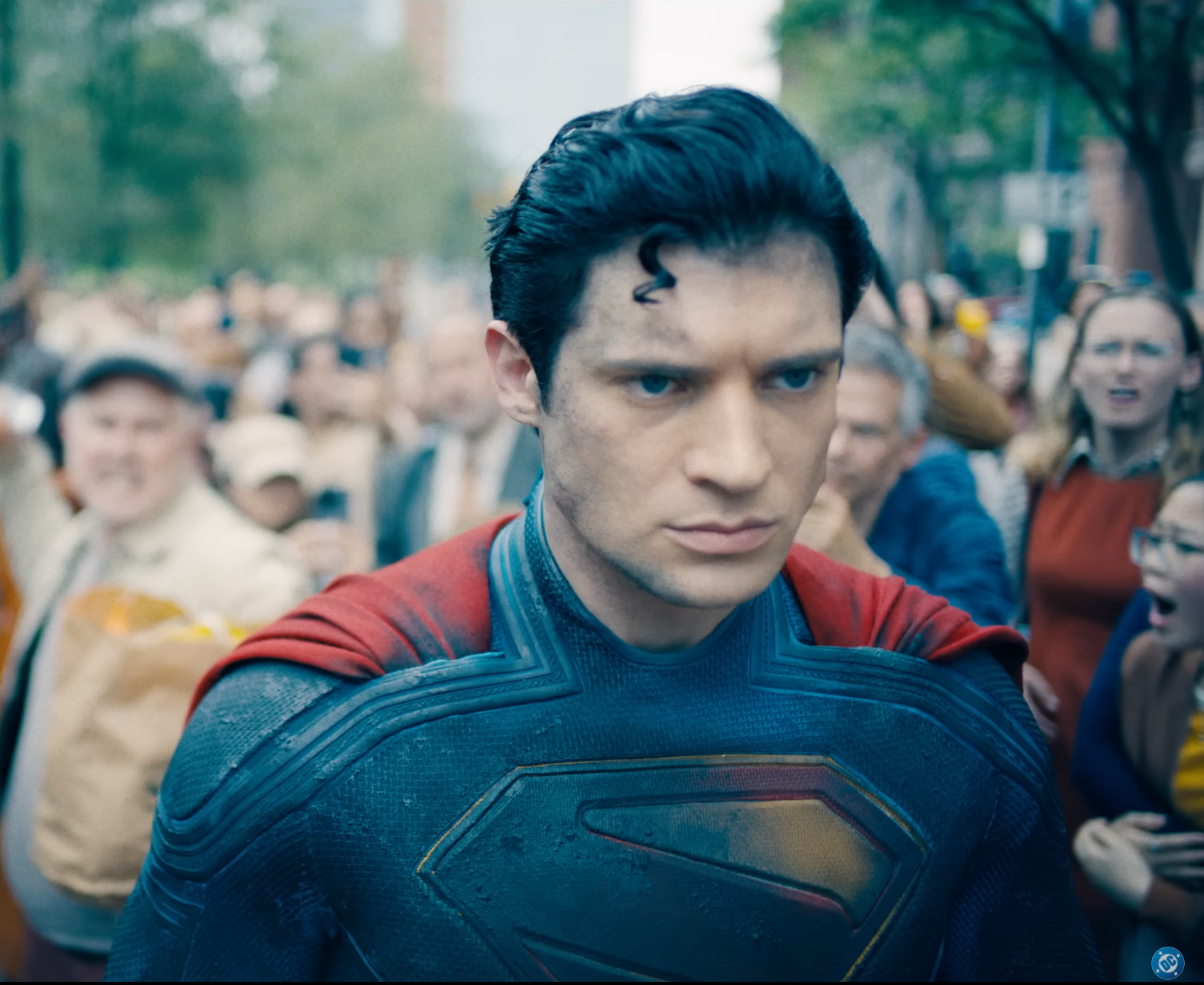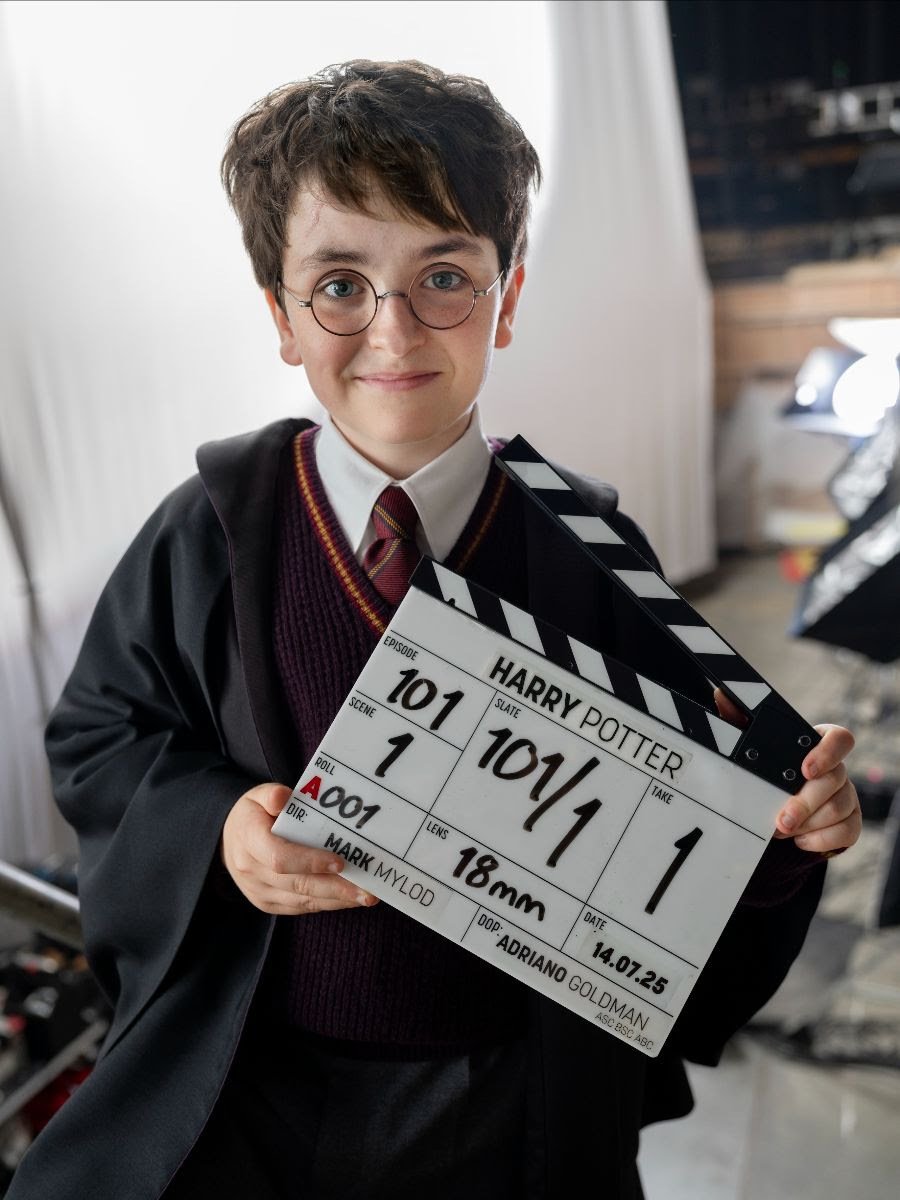Ralph Rivera is an award-winning documentary filmmaker who loves to tell stories about his amazing life in Hollywood. He has created a series of books titled “Dream Chaser” where he recounts his achievements while chasing his dreams. It was during the 1970s he became a major financial executive in the entertainment industry. Rivera became the first Latino of Puerto Rican descent to be included as a team member in the “Ivory Towers” of Hollywood. Of course that was not enough for this trailblazer. With his passion for the entertainment conglomerates a turn-key operation for Hollywood personalities to make money in film, television, publishing, the Broadway theatre, rock and roll music, and classical music. I had the amazing opportunity to have a phone call with this executive and hear about his amazing life.
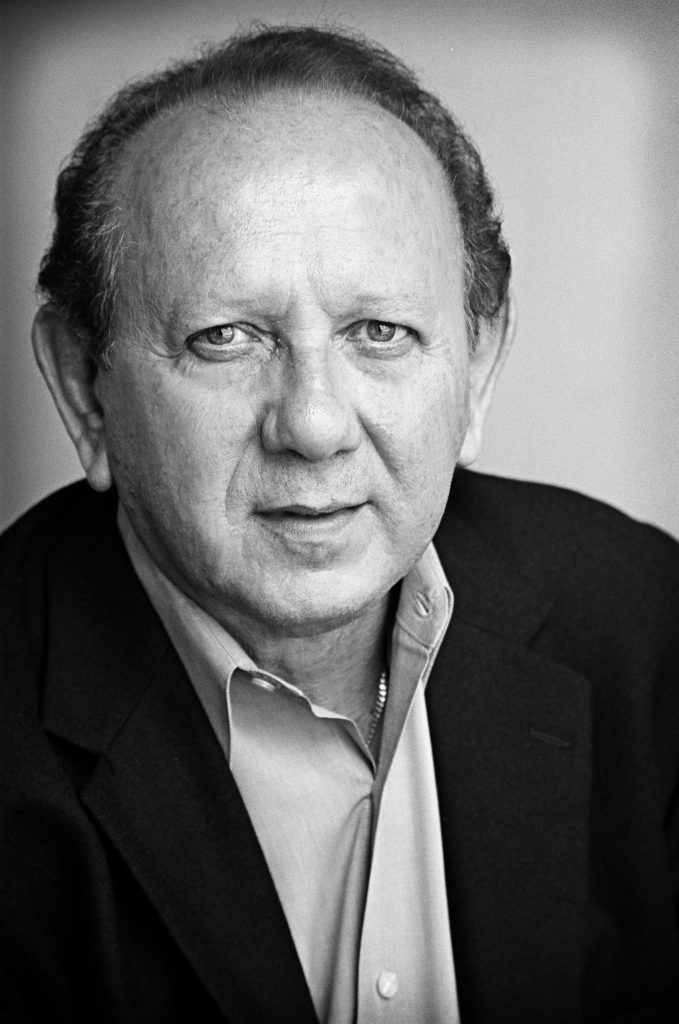
Nancy Tapia: Hi, I feel so privileged to speak to a gentleman of so much knowledge.
Ralph Rivera: Thank you, Nancy.
Nancy Tapia: Your book, Dream Chaser: The Business of Showbiz, is a super catchy title.
Ralph Rivera: You got that. Well Nancy, one of the things that was difficult in entertainment is the business side, where I specialize. I think that basically the memoirs were describing all the wonderful, famous people that I encountered during my time. And let me give you a little background on myself.
Nancy Tapia: Please.
Ralph Rivera: I’m Puerto Rican, and I was born in a coffee farm in the mountains of a town in Puerto Rico. At the age of about six, I was sickened with tuberculosis. And at the age of nine, I was either dying or to be saved. Thank God that somebody.. My mother says, you have to save him, and they saved me. And after 15 years as a young kid, medication, it came out of my system. I had drank some milk from a cow, fresh milk and the cow was sick so I got sick.
Nancy Tapia: Where did you grow up?
Ralph Rivera: I got to New York. I grew up in the South Bronx. And I wanted to find a way of getting out of poverty. So my mom was a major, major influence in my life. I come from a single mother. And she said, look the way you get out of poverty is by getting yourself an education. You’ve got to find ways to be educated. And she tells me, “Unfortunately, I can’t help you too much because I only went to the third grade” and she didn’t speak English either. So anyway, I did find a way to get educated. I became the influence in the community by helping out other folks and the political scene. And I was able to educate myself and go to college. So shortly after college, I went to work for an accounting firm called Price Waterhouse (PC), a major accounting firm in New York. And I didn’t want to be a numbers guy basically, but it was a good training. So I wanted to leave and they helped me to get a job in the entertainment business, which I requested.
Nancy Tapia: Then you went on to California!
I lived in Hollywood for a number of years. When I got there, I was kind of scared because there were no Latinos. Especially not Puerto Ricans. There were a lot of Mexicans, which I made a lot of friends with. And so I went through Hollywood Boulevard to the various, high ways that they have these little memorabilia shops and stores, photos, and fan magazines. And I started looking at that and I was intrigued by it. And 25 years later at the collecting, I wrote a book called “Hollywood: Se Habla Español,” which is a hundred years of contributions made by Hispanics to the Hollywood film industry. From 1908 during the silent era to 2008. The book has become a major favorite at colleges and university level for reference and research. It’s a great gift book. So that book won my first award back in 2009, I became an award winning author with that book.
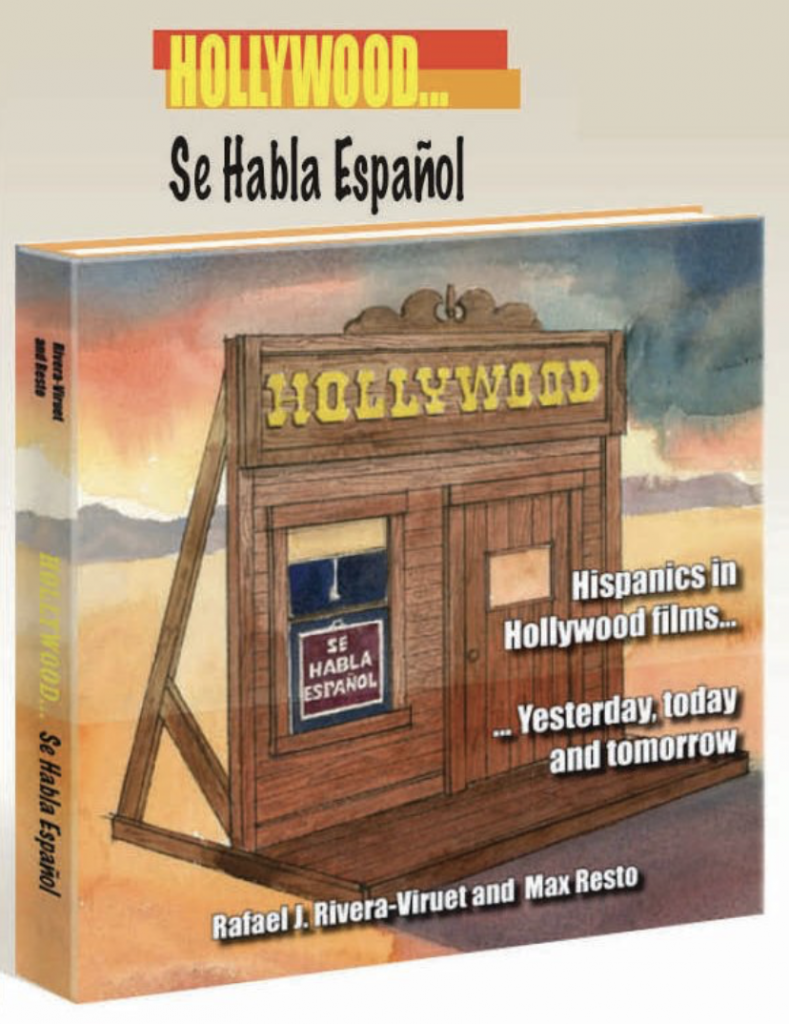
Then about four or five years ago when Amazon started to do a lot of books. The Kindles and all that stuff. A gentleman from Amazon, and I asked him how come we Latinos are not being quoted by you folks to write books about our stories. We’ve got wonderful, great stories to tell. They tell me, well you have a small fanbase. So, told him. I have been a dreamer all of my life. So they asked me, well, what do you want to do? I said, look, I want to do a series. They want me to do of course, electronic books, e-books, e-picture books. So I went ahead and I said, look, I want to do a series called “Dream Chaser.” The first e-book is called “Dream Chaser: From the Hills of Puerto Rico to the Hollywood Hills.”
Second e-book, is called “Dream Chaser: Growing Up in the South Bronx.” Then I said to myself, I really enjoy reading books and I liked the feel of turning the pages. So my next Dream Chaser book I want to make is a picture book. I want to make it in hardcover. That’s when I went ahead and I called it, “Dream Chaser: The Business of Showbiz.”
In the 1970s, there were a lot of turbulent things going on. And I decided that I would leave Price Waterhouse and join a small firm that represented artists in film and television, and music. And I joined a company that was making about two million dollars a year in growth. 10 years later, when I left and put the whole thing together with my team, we were making a half a billion dollars, $500 million in sales.
Nancy Tapia: Wow!
Ralph Rivera: So I wanted to write about that because during that time I missed some fabulous people personalities that were just amazing. And in addition to that, I wanted to make a difference. So I went ahead and I write a book about how I put together this small company, married to a giant. And I started doing things within the company to expand its swings.
Also Check Out: Football Is Life: Actor Cristo Fernandez Of The Ted Lasso Cast Speaks! [Exclusive Interview]
Nancy Tapia: Please share
I write about in 1974, we were at a skyscraper building in New York City on Sixth Avenue and 42nd Street. We had gathered all our subsidiaries and we put everybody to the one building. We have two floors, the sixth and the 18th floor. And as we were moving in, there was a major electrical fire. And it was just an amazing and busy experience because we had just put together a film package of a movie called The Towering Inferno with Steve McQueen (The Great Escape, Bullitt, Papillon).
Nancy Tapia: The “King of Cool”
Ralph Rivera: Yeah! So what happened was that the media had a lot of fun with it because they were describing how the fire was similar to The Towering Inferno fire.
Then I was asked to meet a gentleman to help him buy a car. I said to myself, why did I need to help someone buy a car? But the chairman of the board, Steve who knew me well said, “I have a client that I want you to meet. He wants you to help him out on something”. So I go up to the boardroom and there is a gentleman. He looks so weird with long hair, long beard. He looked like an old, man, and his name was Steve McQueen. And so Steve said he had just done a movie that we have put together called Bullitt. And he wanted to buy a similar car that was in the movie because the movie wouldn’t sell him the car. So because we represented him, I spent a summer with him looking for the 1968 car. We finally found it, but he and I had a wonderful experience going back and forth. And it was amazing.
The following year, I was involved in negotiating a contract with ABC television, for the televised 1976 Summer Olympics in Montreal, Canada. After the deal was done the Mayor of the city gave me a present. The present was to go to Montreal and attend the games every day. That was a super experience with my kids and my wife at that time. So I write about that.
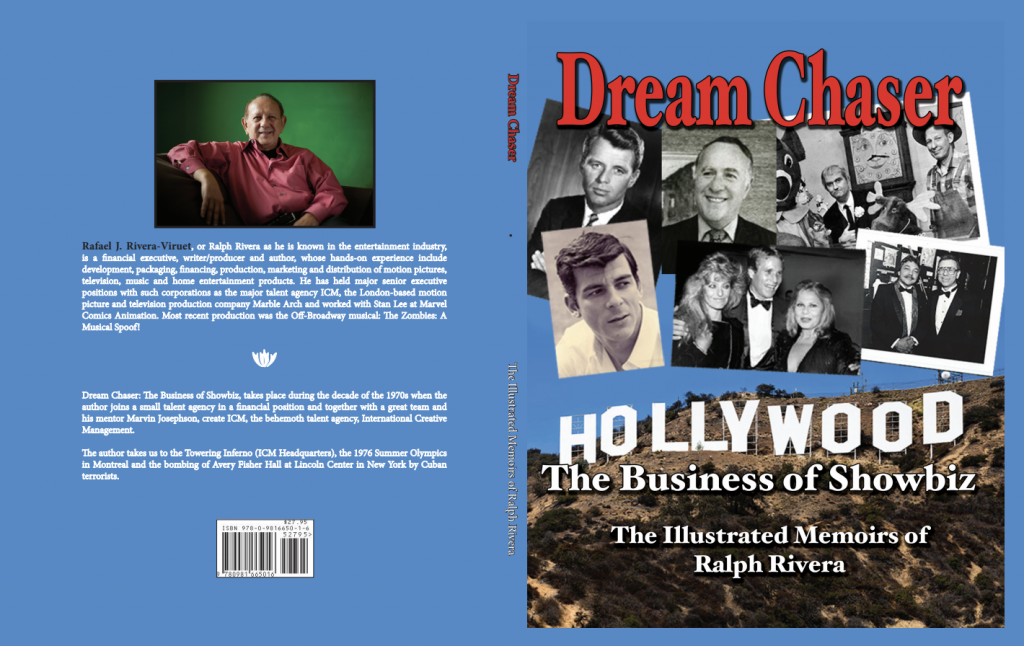
Nancy Tapia: Tell us about Cuba
Ralph Rivera: I’ve always been into culture and especially music. I’ve got a lot of music. I wanted to go to the communist country and bring their music and their culture to the United States. And I would reciprocate by doing the same thing. Taking our music, jazz, rock and whatever to their country. The first country that I wanted to do it was Cuba. However, there was an embargo and the Russians were in charge. And the only way I could get there was with State Department approval. Luckily I had a dear friend of mine who was a Congressman, Robert Garcia. I talked to Bobby what I wanted to do, and he says, “Okay, I’ll get the State Department on it”. Anyways, to make the long story short. The State Department gave me the license and the ability to go to Cuba and look at their cultural stuff. We made a deal that we would do a big concert at the Karl Marx Theatre in Havana with our music.
So I took in the major jazz people, Kris Kristofferson, Rita Coolidge, the Jazz Allstars that were very big. We had a great time and they called it the Cuban Jam Session. And there was a number of CDs, albums and documentaries about that.
Nancy Tapia: That is super awesome, making history.
Ralph Rivera: So then after we finished up the concert they gave me an opportunity to now bring from Cuba to New York and every session or Lincoln Center the culture and music. I brought in a very famous band that was called Orquesta Aragon, a great singer Ella Fitzgerald of Cuba and Elena Burke. We had a great concert on December 30th, 1978, I think it was. After we went to celebrate the success and at the dinner table I get a call from a reporter. Tells me they just blew up Lincoln Center, they put a bomb in your office that did not go. And they put a bomb in the Cuban office that did go off. So I said, Oh my God! So then I got these messages from anti-Castro groups called Omega Seven that threatened my life and my family. I called the CIA, FBI you name it. They said, you have to stop this otherwise, they’re going to hurt you.
So also wrote about that. And there was a period of my life where I was just testing my dreams. And I write about this and the decade of the 1970s. Then I went back to Hollywood and I worked with Stan Lee doing Spider-man for the animation during the 90s, and Ironman. I’ve done major documentaries on the history of salsa for PBS. I’ve done a documentary on the history of the 500 year history of San Juan, Puerto Rico. I’m just having fun, chasing my dreams.
Also Check Out: Colman Domingo Shares His Passion For Cocktails Talking About Bottomless Brunch At Colmans
Nancy Tapia: Why did you decide to transfer to the entertainment industry?
Ralph Rivera: Great question. Well, I’ve always loved music. And when I was a junior in High School I was a trumpet player in the orchestra. My health wasn’t that great and I couldn’t blow the horn anymore. But I still wanted to be involved somehow in the music field. So when I was in Price Waterhouse they put me in jobs like Paramount Pictures, Columbia Pictures and Publishing. And I said, wow, this is fabulous! I love this because it entailed film, television, music, publishing you name it. And so when I decided to leave Price Waterhouse, I asked them that I wanted to go to an entertainment company and they put me together with a set of companies.
So it’s just a matter of the passion that I had for music and entertainment. Entertainment is business. In fact, I have a chapter in my book, that’s called The Art of Movie Package. This is where when you go ahead and control so many things in a company, almost like a monopoly. Starting from the writer. For example, where we were responsible for putting together the movie Jaws, it was a major success. We had Peter Benchley (Jaws, Jaws 2, Jaws, 3-D) as the author.
Then we had Steven Spielberg (Schindler’s List, E.T. Saving Private Ryan) as a director. So we put an entire package together with writers, took it to the studio and they picked it up right away. You put up the money right away and the rest is history. We did the same thing with other movie packaging. It’s an art in itself basically. It’s difficult to understand unless you’re part of it and work on it every day.
Nancy Tapia: Well, we are super fortunate that you are putting everything in writing and we get to curiously read it and get to visualize from your written words. Congratulations on your nomination by the 22nd International Latino Books Awards this weekend! The largest Latino cultural awards in the United States.
Ralph Rivera: Thank you so much for this. Thank you.

 FOR FANBOYS, BY FANBOYS
Have you checked out LRM Online’s official podcasts and videos on The Genreverse Podcast Network? Available on YouTube and all your favorite podcast apps, This multimedia empire includes The Daily CoG, Breaking Geek Radio: The Podcast, GeekScholars Movie News, Anime-Versal Review Podcast, and our Star Wars dedicated podcast The Cantina. Check it out by listening on all your favorite podcast apps, or watching on YouTube!
Subscribe on: Apple Podcasts | Spotify | SoundCloud | Stitcher | Google Play
FOR FANBOYS, BY FANBOYS
Have you checked out LRM Online’s official podcasts and videos on The Genreverse Podcast Network? Available on YouTube and all your favorite podcast apps, This multimedia empire includes The Daily CoG, Breaking Geek Radio: The Podcast, GeekScholars Movie News, Anime-Versal Review Podcast, and our Star Wars dedicated podcast The Cantina. Check it out by listening on all your favorite podcast apps, or watching on YouTube!
Subscribe on: Apple Podcasts | Spotify | SoundCloud | Stitcher | Google Play

